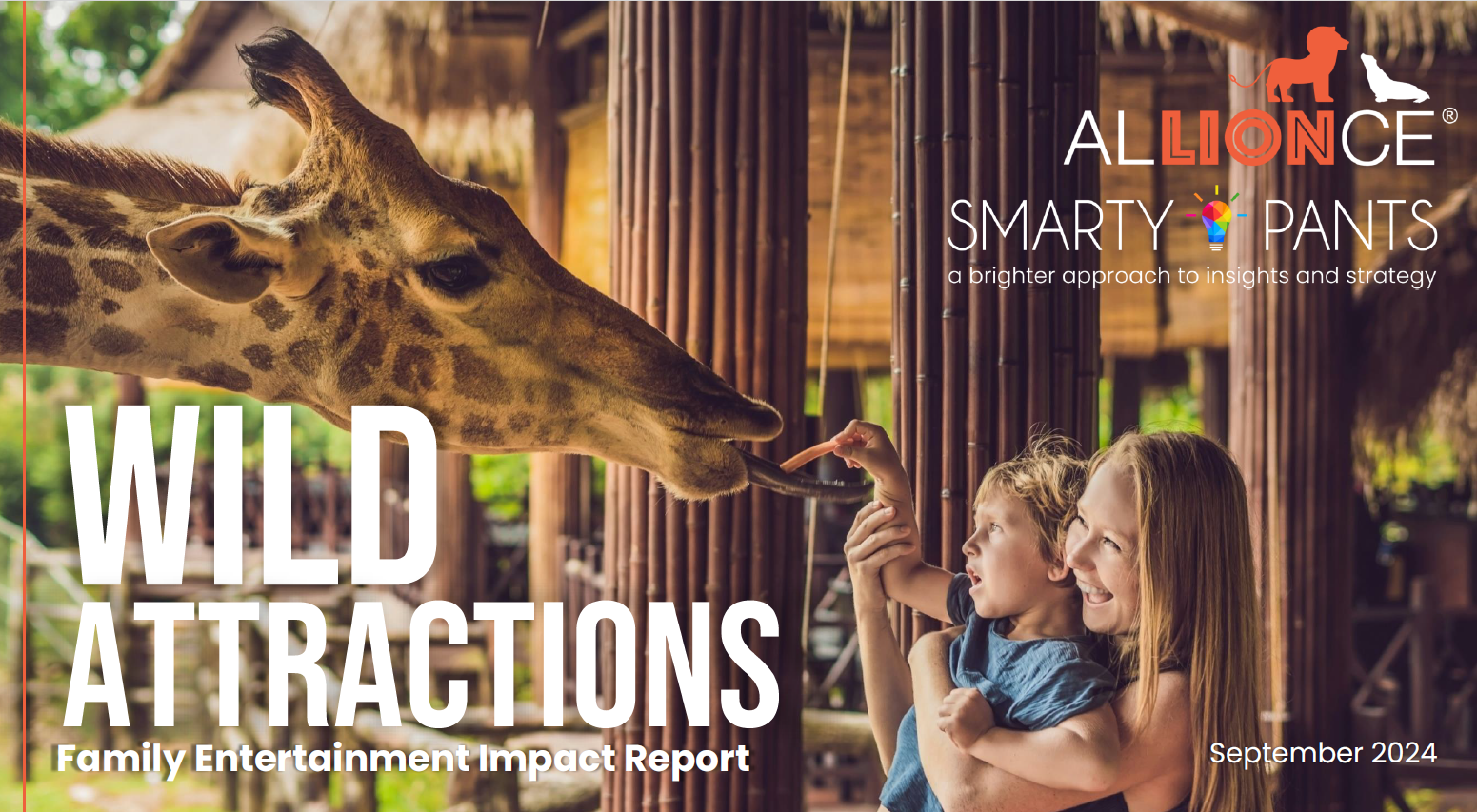
- September 09, 2024
Allionce Group Reveals New Research from Family Insights Leader Smarty Pants

Allionce Group, the leader in helping brands engage with parents & kids at scale, has partnered with Smarty Pants, a custom insights and strategic consulting firm to reveal new quantitative research. The primary goal of this Family Entertainment Impact Report was to quantify moments of joy, positivity, and togetherness during shared family entertainment experiences.
The topline findings reveal that experiences win with families. The in-person and real-time nature of family entertainment (zoos, aquariums, children’s museums) fosters deeper bonds, provides more positive family experiences and heightens joy for families more than screen entertainment (TV, online, videos, social media)
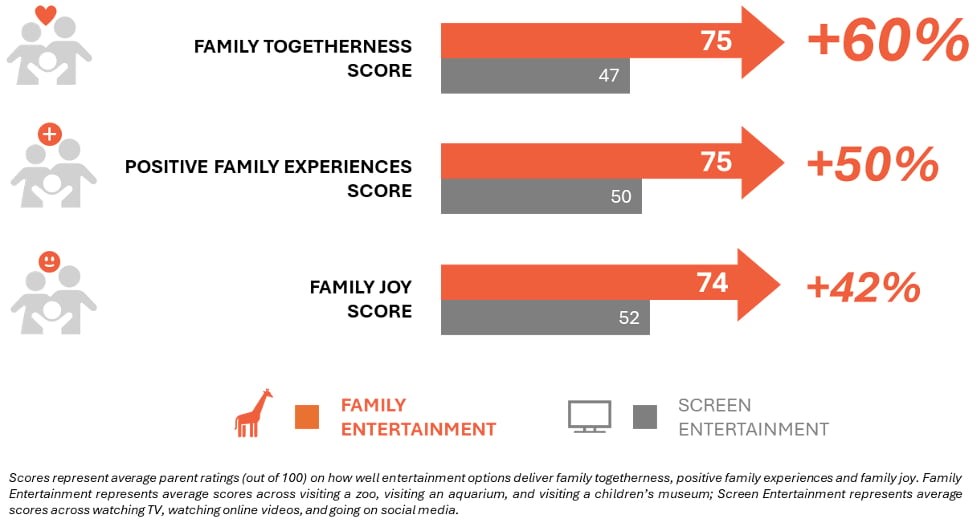
For families with kids as young as 2 and as old as 12, experiential family entertainment consistently outperforms screens on what families seek from their time together.
EXPERIENCES FOSTER DEEPER BONDS
Zoos, aquariums and children’s museums are better at bringing families together than screen-based options. For example, visiting a zoo brings two times the family togetherness that social media offers.
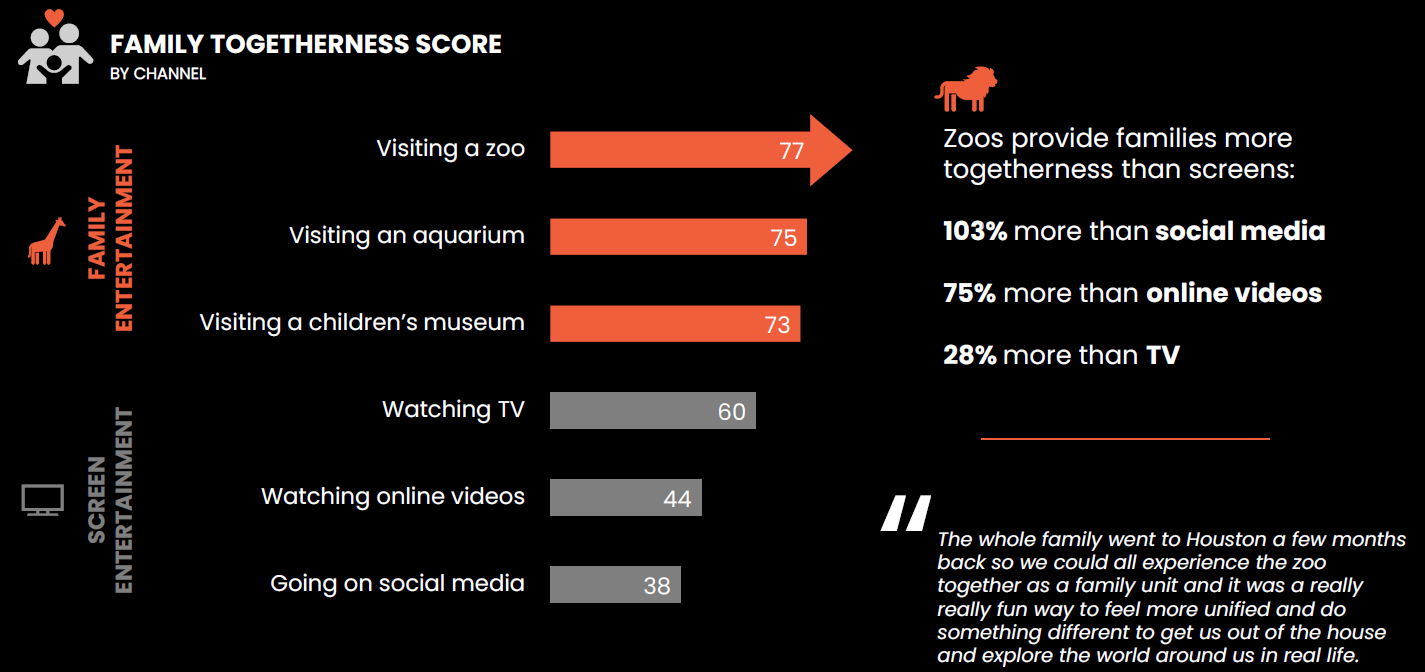
EXPERIENCES ELEVATE FAMILY POSITIVITY
Zoos, aquariums and children’s museums make families feel better about the experiences they are having together than screen-based entertainment. For example, visiting a zoo leads to 81% more family positivity over social media.
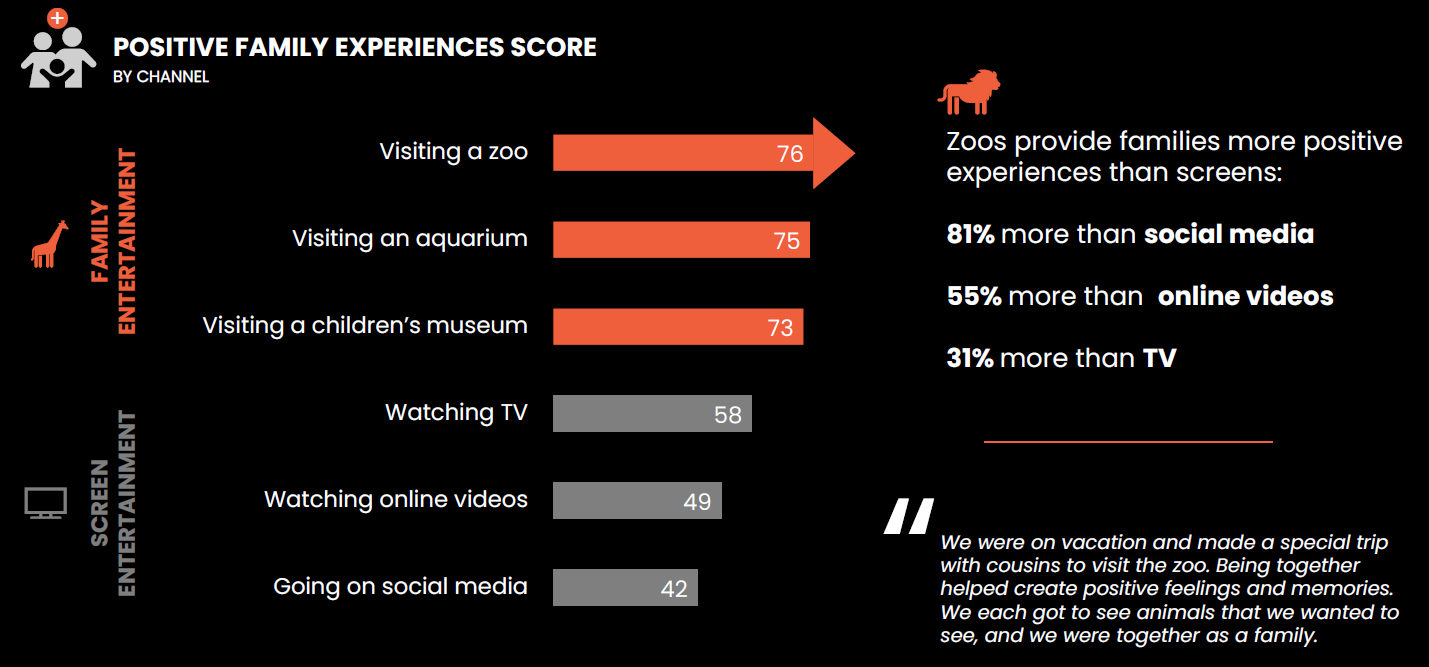
EXPERIENCES HEIGHTEN FAMILY JOY
Zoos, aquariums and children’s museums put more smiles on collective faces than screens-based entertainment. For example, visiting a zoo visiting a zoo provides 73% more family-based joy over social media.
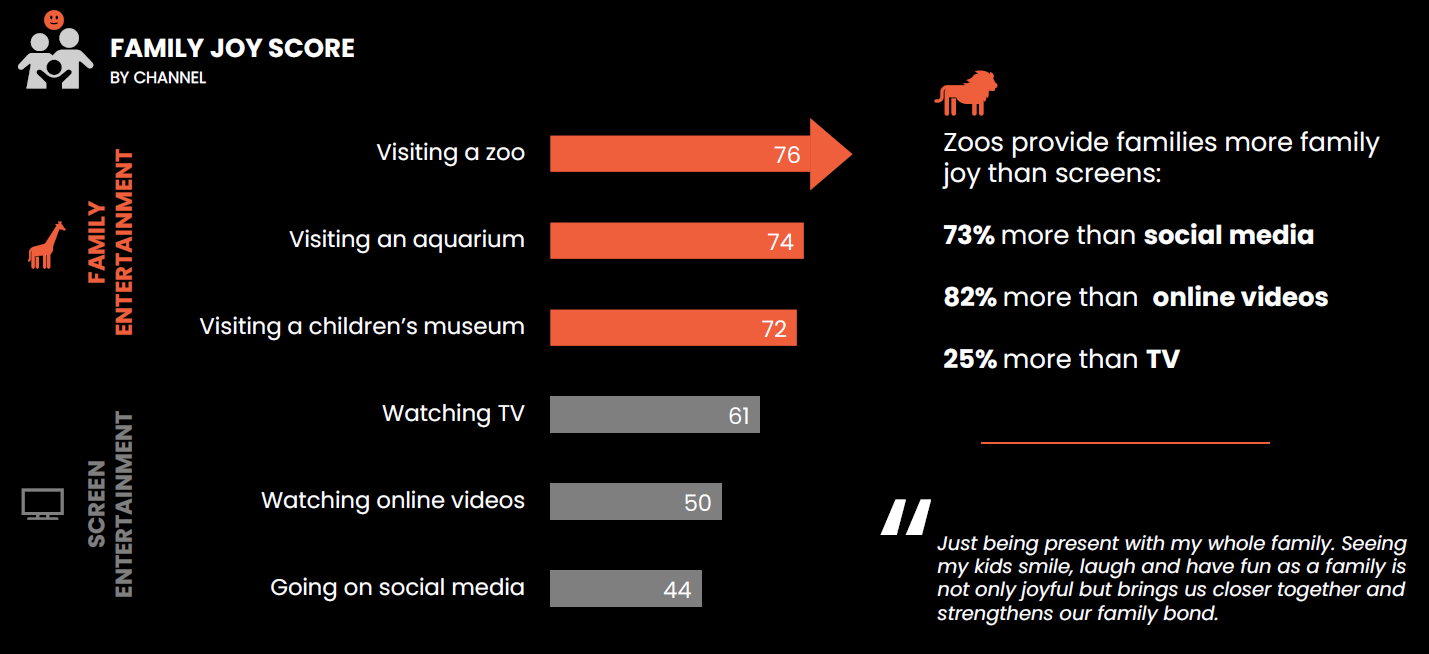
And, family entertainment’s advantage is true across parent generations and child age cohorts as well.
In parents’ own words:
- “Just being present with my whole family [when visiting the zoo]. Seeing my kids smile, laugh and have fun as a family is not only joyful but brings us closer together and strengthens our family bond.”
- “It is great family time [at the aquarium]. We get to explore and talk about the things we are seeing. It is creating memories.”
- “We go often to the Discovery Children’s Museum, and watching my kid play and discover new and exciting things warms my heart. Last time he learned a lot about electricity because of a new exhibit that was sponsored by an energy company.”
Our brains are wired for experiential impact. The results from this Family Entertainment Impact Report are bolstered by neuroscience and cognitive psychology regarding how the brain processes information and stores memories. Multi-sensory experiences are more likely to be “perceived” (NOT be ignored), allowing associated memories to move more easily from Sensory Memory to Short Term Memory, and ultimately to Long-Term Memory (with the right cues/hooks/messaging, etc.). This makes a strong case for experiential entertainment-based marketing over screen-based media, where brands may more easily be ignored – and forgotten.
In parents’ own words:
- “Anything associated with a zoo and family time I would associate good feelings with. I love going to the zoo with my granddaughter and daughter.”
- “My visit to the aquarium gave me a good feeling about Nathan’s hot dogs because we had them for lunch.”
IMPLICATIONS FOR MARKETERS
- Connecting with kids (and their adults) during their family experiences has a positive and lasting halo impact on brands.
- Sponsoring experiences at zoos, aquariums and museums enables your brand to form a strong association as a booster of togetherness, joy and overall positivity.
- At a time where kids are spending 6* hours/day on screens, being part of the moments where they interact with those they love in places that ignite passions not only fuels their development but also has the potential to spark connections with your brand.
- Beyond the real-time experience of a zoo, aquarium or museum, families talk about the memories, discoveries and adventures of their day-out – as they reminisce, look at photos and think about those togetherness moments. Harness the potential of these emotionally rich storytelling moments.
*American Academy of Child Psychiatry average screen time for kids 8 – 12, CDC – 6 hours for kids ages 8 – 10 and 9 hours for kids 11 – 14.
